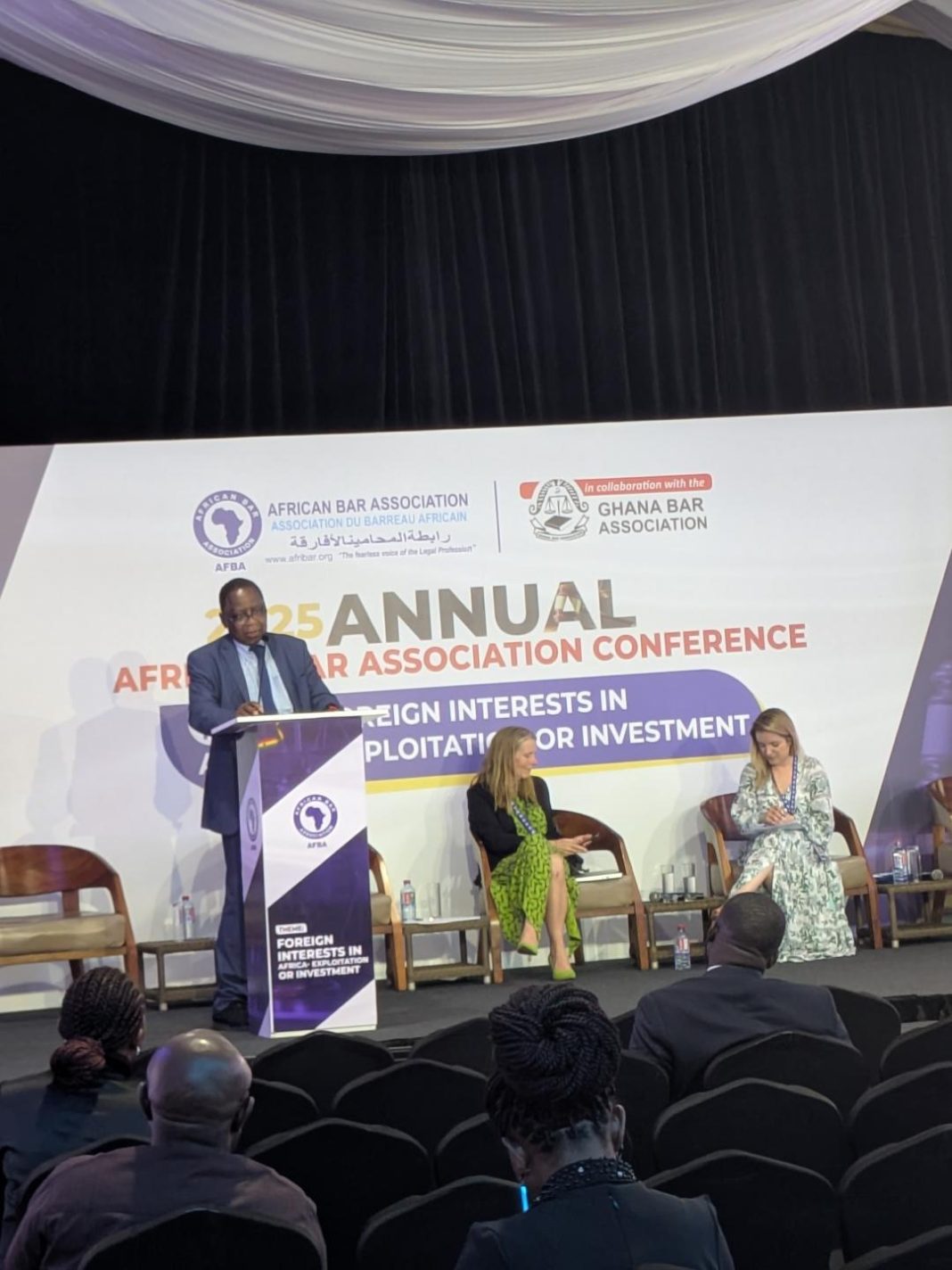Copyright ghanamma

By Joseph Besong In a powerful and uncompromising address at the 2025 Conference of the African Bar Association (AfBA) in Accra, Ghana, Chief Charles A. Taku, President of the AfBA Reparations Committee, made an impassioned appeal for what he termed “The Accra Declaration” — a continental demand compelling Europe and the West to pay reparations for the centuries of slavery, colonialism, and cultural theft inflicted upon Africa and its peoples. Delivered on October 21, 2025, exactly 39 years after the African Charter on Human and Peoples’ Rights entered into force, Chief Taku situated his remarks in the legal and moral authority of the Banjul Charter, reminding delegates that the document’s preamble mandates the pursuit of justice and redress for the “historical wrongs and crimes” committed against the continent. “The African Charter enjoins us to eradicate all forms of colonialism and neo-colonialism,” he said. “Reparations are not an act of charity — they are a matter of justice, recognition, and historical accountability.” From the Berlin Conference to the Banjul Charter Chief Taku drew a direct line from the General Act of the Berlin Conference of 1885, which partitioned Africa among European powers, to the enduring structural injustices that continue to cripple African development today. Quoting the very words of the colonial pact — which claimed to bring “the blessings of civilization” to Africans — Taku described how the so-called “protection of natives” masked a genocidal campaign against African spiritual systems, cultural heritage, and sovereignty. “The colonial agenda specifically targeted African civilization, spiritualism, creative ingenuity, and cultural heritage,” he declared. “Missionaries and European professionals did not merely observe these crimes — they participated in them.” He cited chilling examples of European doctors and explorers who looted human remains and sacred artifacts, including Dr. Theodor Berké, who extracted over 100 human remains from the Bangwa and Anyang peoples between 1901 and 1904, now kept in European museums. German officers, he noted, went as far as coordinating “punitive expeditions” to seize cultural objects for European institutions like the Berlin Museum für Völkerkunde. A Legal and Moral Case for Reparations Chief Taku meticulously outlined how European treaties, from the Hague Conventions of 1899 and 1907 to the United Nations Charter of 1945, have long recognized the obligation to return looted property and to provide reparations for wartime and colonial plunder — obligations that have been consistently denied to Africa. He invoked the words of legal scholar Professor Max Hilaire, who described the post–World War II order as a “Westphalian shield of impunity” that protected European powers while excluding African claims. “While the Geneva Conventions and the Universal Declaration of Human Rights were being signed,” Taku said, “Africa was still bleeding under colonial and genocidal systems justified by those very signatories.” Continuing Crimes and Economic Apartheid Taku warned that the neocolonial structures established by former colonial powers, notably France’s “Françafrique” networks, continue to suffocate African sovereignty through exploitative monetary systems, economic sabotage, and control of natural resources. “France, newly humiliated in World War II, responded not with reform but with terror,” he said. “It replaced occupation with economic warfare, cultural domination, and political puppetry. Africa remains independent but not free.” He added that the same applies to the former colonies of Belgium, Portugal, and Spain, whose destructive legacies remain visible in poverty, instability, and cultural erasure. Toward an Accra Declaration Chief Taku concluded with a clarion call for the “Accra Declaration” — a unified African legal and diplomatic framework to demand reparations and restitution for the transgenerational harms of slavery, colonialism, and systemic racism. He urged African lawyers, governments, and civil society to marshal the moral, legal, and political instruments at their disposal, including international courts and UN mechanisms, to pursue these claims with the same vigor once used to dismantle apartheid and colonial rule. “Africa’s liberation is incomplete without reparations,” he declared. “The wealth of Europe and the West was built on African blood, culture, and genius. Justice demands not only acknowledgment — but restitution.” As applause filled the Accra conference hall, it was clear that Chief Taku’s call had struck a chord. His message was more than an academic argument — it was a rallying cry for a generation determined to end centuries of impunity and reclaim the dignity and destiny of Africa and its global descendants.



